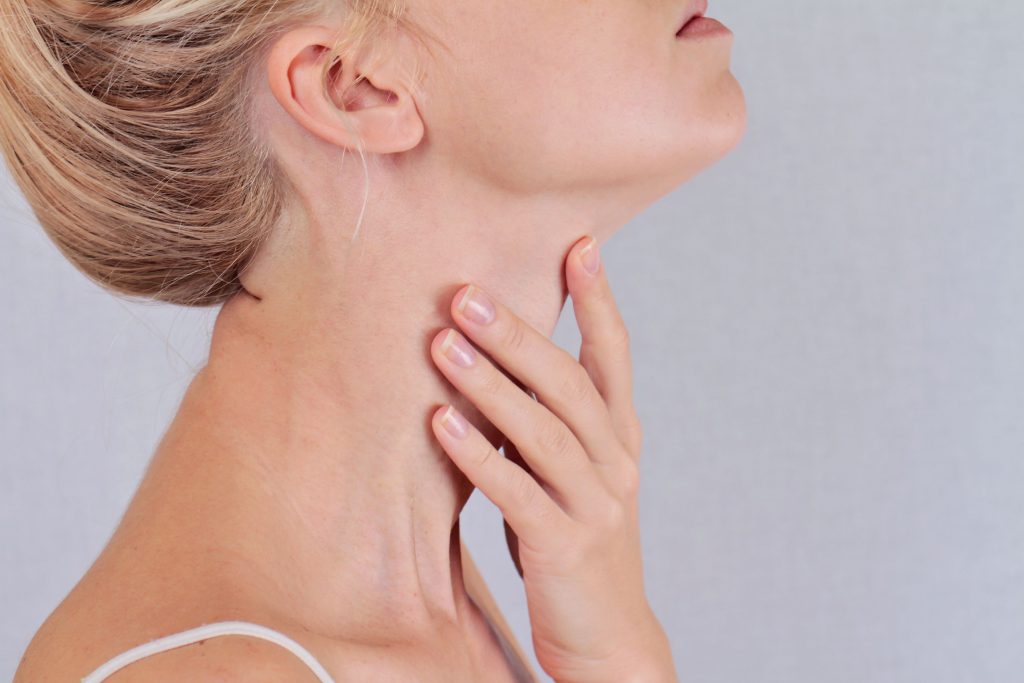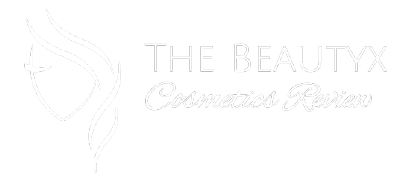Both conditions, either when thyroid gland produces too many hormones (hyperthyroidism) or when there are too few secreted (hypothyroidism) entail negative consequences for our body. Before discussing the issue of how thyroid hormones influence hair condition, let’s explain what thyroid insufficiency is; present its causes and symptoms. Also, we’re going to help you choose brushes, hair accessories and cosmetics that are worth using when suffering from hypothyroidism. What hair treatments are recommended to undergo when thyroid gland fails to funcion normally? How to find a hairdresser who will satisfy our needs in this state of ours?
 What is thyroid insufficiency?
What is thyroid insufficiency?
Thyroid insufficiency, also called hypothyroidism, is a dysfunction of the thyroid gland that produces insufficient amount of hormones in comparison to the organism’s needs. Thyroid gland is a relatively small organ located at the base of neck. It’s responsible for secreting and releasing two hormones: triiodothyronine (T3) and thyroxine (T4), both regulating the proper functioning of most tissues of the organism as well as influencing metabolic rate and producing warmth (thermogenesis). The activity of thyroid glad is controlled by pituitary gland. It’s the very gland that releases thyroid-stimulating hormone (TSH) which encourages thyroid gland to produce T3 and T4. The proper functioning of thyroid gland and pituitary gland remains in close relationship: the excess of thyroid gland hormones makes pituitary gland secrete less TSH, whereas the shortage of the very hormones stimulates TSH production.
Thyroid insufficiency – Causes
The causes of hypothyroidism are:
- Hashimoto’s disease, which is the name for chronic autoimmunological thyroiditis. This disorder is painless but it slowly destroys thyroid gland and restricts the production of the hormones secreted by it.
- Total thyroidectomy (surgical removal of thyroid gland) which is the aftermath of, among others, thyroid gland cancer, Graves’ disease (Basedow’s disease) and enlarged thyroid gland. As a consequence, the permanent thyroid insufficiency follows and its severity depends on the fact whether the thyroid was removed completely or just partly, e.g. one lobe.
- Radioactive iodine treatment which is used to cure, among others, thyroid gland cancer, Graves’ disease (Basedow’s disease) and enlarged thyroid gland.
- Thyroiditis (in this case thyroid insufficiency might stamp out).
- Drug-induced thyroid insufficiency which develops as a result of taking, for example, an anti-arrhythmic, antiviral or anticancer medications.
- Iodine shortage.
- Irradiation of neck area due to cancer (in this case thyroid insufficiency might develop even a few years after the procedure).
Thyroid insufficiency – Symptoms
Here are some symptoms of the disease:
- fast fatigue;
- excessive sleepiness;
- motor retardation;
- mood drop and negative thoughts;
- constant feeling of chill (even on hot days);
- frequent constipation;
- gaining weight despite the lack of appetite;
- hoarse voice;
- concentration disorders;
- brittle hair and excessive hair loss;
- thinning eyebrows;
- dry skin.
How thyroid hormones affect hair condition?
For the problem of hair loss responsible are thyroid-stimulating hormone (TSH) and thyroxine (T4). To clarify, TSH concentration rises when pituitary gland makes thyroid gland produce its hormones while the very gland isn’t able to measure up to it. This leads to thyroid insufficiency.
Furthermore, hypothyroidism affects metabolism. More precisely, this disorder slows metabolism down which leads to premature release of hair bulbs. As a consequence, every single tugging with a comb can lead to plucking hair out unintentionally. In addition, thyroid insufficiency delays the process of producing new hair making the grown-out ones thin. When it comes to the shortage of thyroxine, which is strictly associated with hypothyroidism, this makes hair matte, brittle, rough and dry.
In the case of thyroid insufficiency, pharmacological treatment is recognized as crucial. The adverse effects of this disorder can be made less severe by applying other treatments, especially by exposing the strands to the dedicated hair care procedures.
Thyroid insufficiency – Hair brushes
A good solution for those who are affected by thyroid insufficiency disorder is the use of delicate brushes designed especially for thin hair. Such accessory helps restore shine to hair and at the same time won’t cause any damage to the already weak hair ends. One of the brushes recommended in this case is Tangle Teezer. When the hair is wet, it’s advised to reach for TT Aqua Splash, whereas dry hair should be treated with TT Salon Elite. Due to regular TT use, hair becomes shiny and resistant to static.
Thyroid insufficiency – Hair accessories
In the case of thyroid insufficiency, flat irons and curling irons are the hair accessories that shouldn’t be used frequently. The perfect solution would be refraining from using a blow drier as well, but if it isn’t possible, it’s better to use a device that features ion function and goes with airstream temperature adjustment system. The part of hair growing near the scalp should be blow-dried using warm airstream, whereas the mid-lengths downwards should be blow-dried with cool airstream. Thanks to this, the strands won’t get frizzy or damaged.
Thyroid insufficiency – Hair care products
Hair care in the case of thyroid insufficiency should be based on the products dedicated to thin hair. Such cosmetics frequently contain osmanthus extract and ginger oil which are highly useful and beneficial. Moreover, mixing castor oil with a shampoo is another advisable thing to do. Adding just one teaspoon per 100 ml of a shampoo suffices. When it comes to hair masks, it’s suggested enriching them with cocoa to leave the mixture on hair for 30 minutes (once a week) afterwards. Thanks to such treatment, hair starts looking really good.
Additionally, it’s worth changing the hair care products frequently because once the strands get used to them, the products might stop delivering the looked-for action. Also, it’s better to choose SLS-free and paraben-free products.
Thyroid insufficiency – Hair beauty treatments
Women suffering from hypothyroidism can expose their hair to a particular group of hair treatments. The most recommended procedures promoting hair health is the use of ultrasonic infrared cold iron. Despite resembling a flat iron, this hair tool’s action is completely different. Namely, owing to ultrasounds and emitting infrared light, it’s able to regenerate damaged hair ends and stimulate hair bulbs to grow long hair. Additionally, it’s advisable to go for steam sauna or hair reconstruction treatment. Just one session improves hair condition significantly.
Thyroid insufficiency – Hairdresser
The truth is that in general it’s hard to find a good hairdresser. Sadly. this problem becomes even more complicated when suffering from thyroid insufficiency – this makes this issue even more complex. Still, it’s worth trying. What are the qualities of a good hairdresser? First and foremost, a good hairdresser wants to get to know their customer and the hair as well as has a huge hair care cosmetic base at their hands.



Leave a Reply